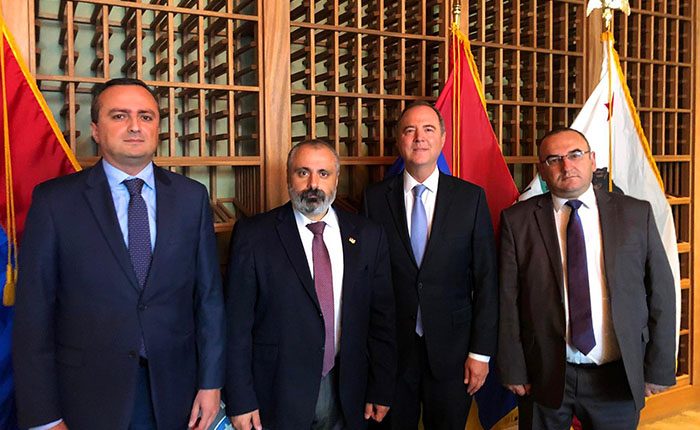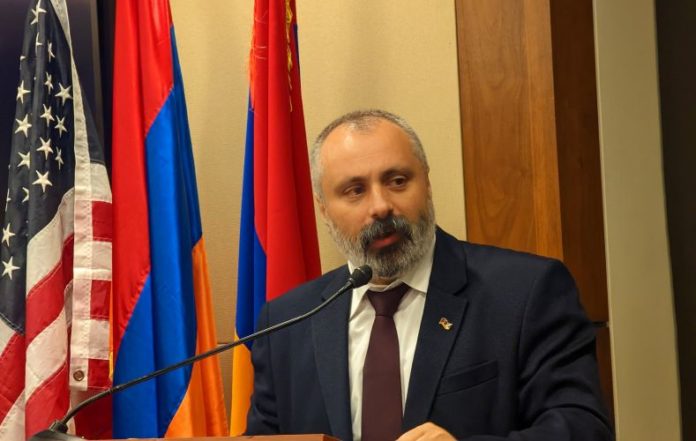WATERTOWN — Foreign Minister of the Republic of Artsakh David Babayan completed a brief visit to the United States at the end of September, accompanied by Lernik Hovhannisyan, Artsakh Deputy Minister of Education, Science, Culture and Sports, and Robert Avetisyan, Artsakh Permanent Representative to the United States and Canada. During the visit, Babayan visited Washington, D.C. and Los Angeles.

Speaking before his return to Artsakh, he said that though some time was necessary to understand the long-term outcomes of the trip, “in general, the results are already really positive. We met with local Armenian compatriots and diasporan organizations. You know that the Armenia-Artsakh-Diaspora trinity is at the heart of our state-building process and foreign policy. Within this context, it was a very important visit because we cemented our ties further and we think that such contacts are very important, especially taking into consideration the role of the Armenian-American community in the development of Artsakh and Armenia, and its active role in defending our national interests in the US and globally.”
In addition to meeting American-Armenians, he said, “The second layer of the trip was relations with and interactions with US political, public and analytical circles. We consider this to be very expedient because we have to understand the current reality and see the reality as it is, not to look at it with rose-colored spectacles. We need to know what to expect, what to anticipate.”
While Babayan was unwilling to reveal any specifics, proclaiming his slogan to be “Be quiet, work more,” he did say that the trip allowed explaining the Artsakh position to American circles and pointing out the destructive policy of Turkey. He said, “We also got a general impression, and to some extent even precise data – a picture of possible developments…meetings gave us answers to many, many questions.”
When asked how he interpreted the recent indications of greater US involvement in the Caucasus, he replied: “Every great country has a role to play in the region, and they are playing it actually. But here I would like to underline one crucial point. We don’t have to choose between the US and Russia, or any other country. We don’t have to develop relations with one of them at the expense of the other. It would be a catastrophe for us, not only geopolitical but internal. Look, we are a diasporic people. More Armenians live outside our historic lands than inside.”
He continued that with such large Armenian communities in many countries, we do not want to cause problems for any of them, and Armenians must maintain unity. He said, “There are only two people who can afford to keep normal, very close fraternal relations with many countries which even have problems with each other. They are the Armenian and Jewish peoples. If we don’t do this, it means that we lack either professionalism or patriotism. We should be very, very wise here not to become a battlefield of great powers, because we do not have the resources to even survive in this case.”










